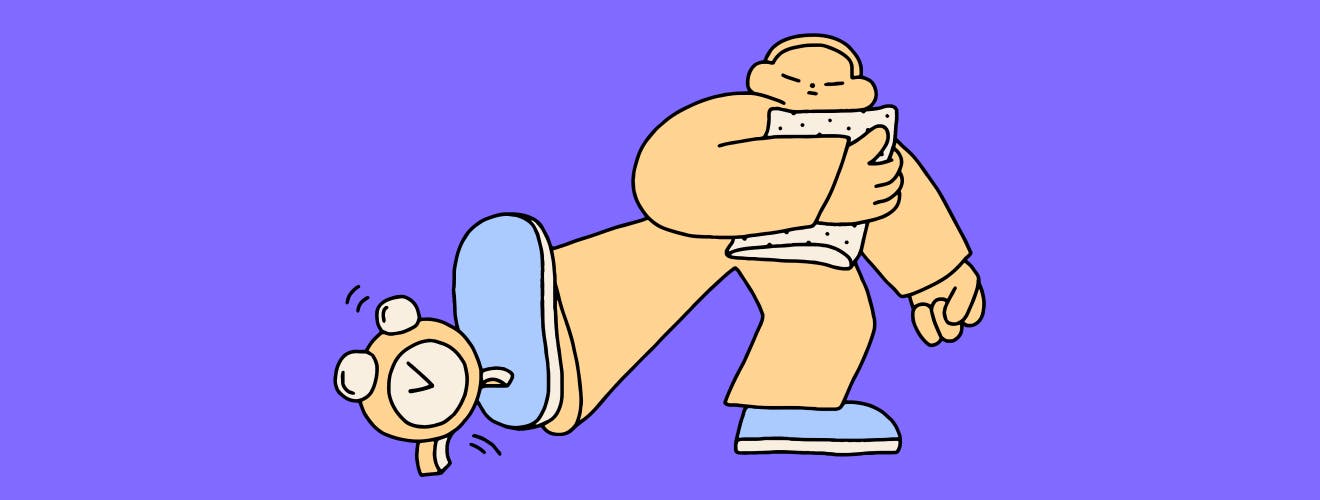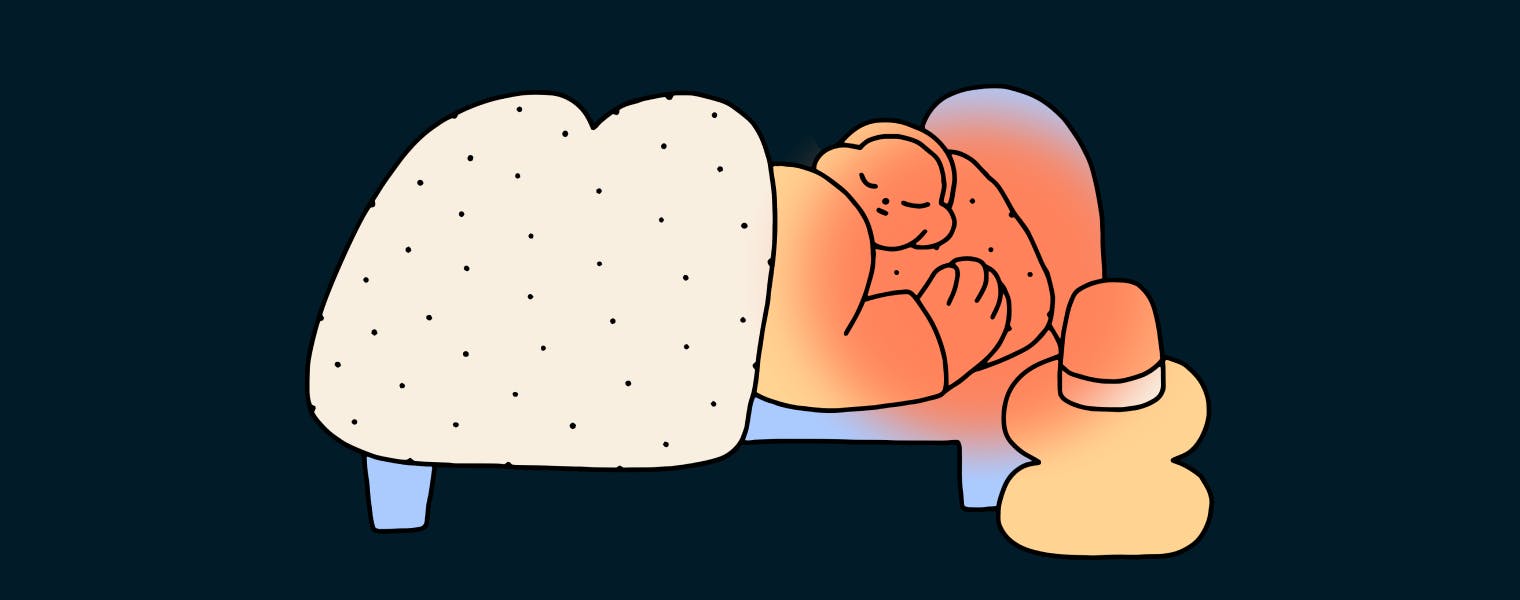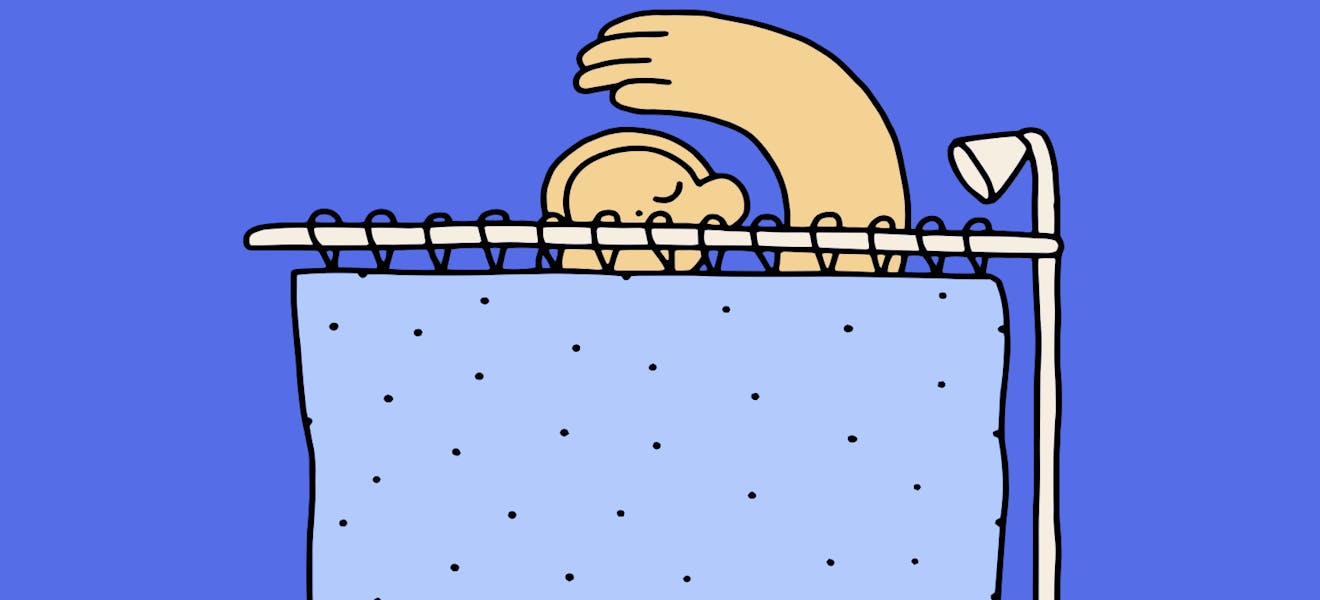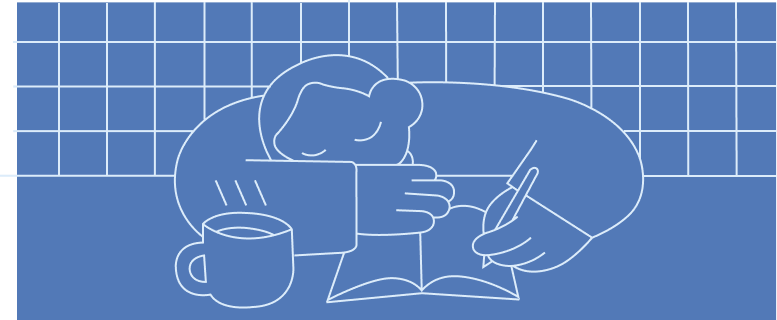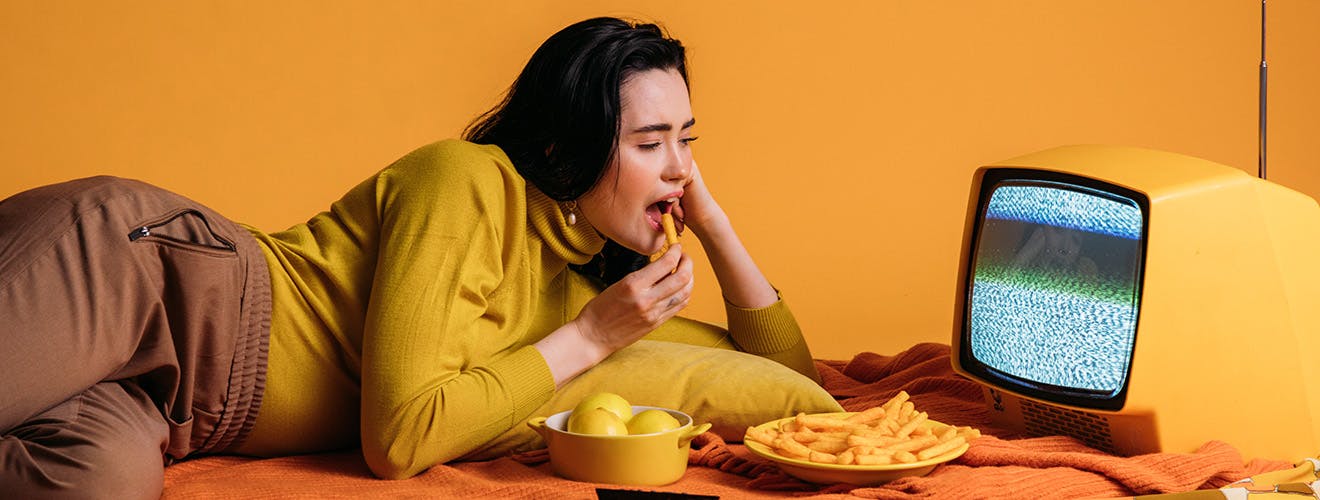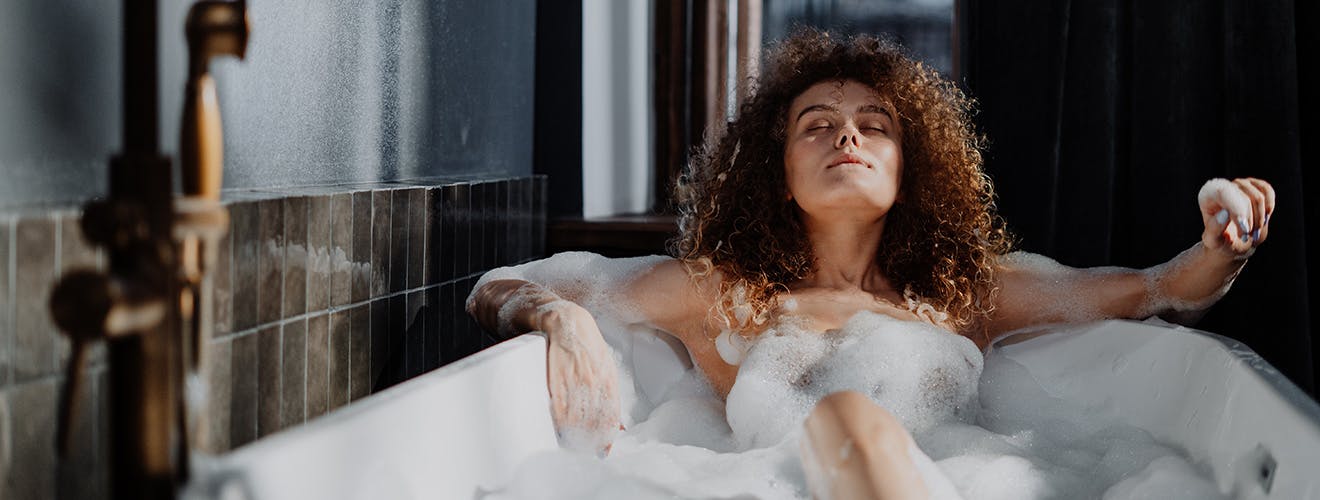Alcohol Makes Me Sleepy: Is That Normal?
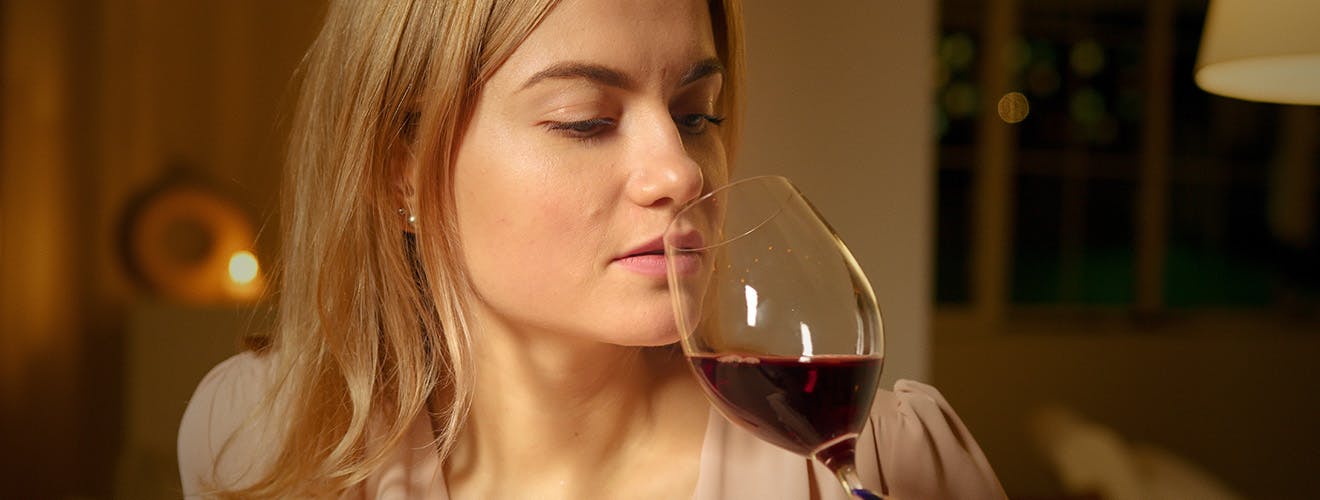
Does alcohol make you sleep? You’re not alone. After all, booze is a depressant. Even if you start to feel pretty darn lively after knocking a few back, the high isn't likely to last. And don't think you're in for a restful night's sleep either, because you're not. Keep reading to learn more about how alcohol affects us, and our sleep.
What's the Connection Between Alcohol and Sleep?
Alcohol and sleep have a pretty basic relationship. Alcohol affects our body in many ways, but the most prominent effects are on our central nervous system, where it plays the role of a depressant.
A nervous system depressant slows down your brain activity, resulting in a much more relaxed state of mind. Depending on your tolerance levels and how much you have consumed, this sedative effect can evolve into drowsiness, putting you to sleep pretty quickly.
Of course, we will note that rapid consumption of alcohol can be dangerous. If you suspect someone is suffering from alochol poisoning, call for emergency medical help right away
Can't Sleep After Drinking? That's Also a Thing
While alcohol plays a role in making you fall asleep, it's also a double-edged sword. Alcohol's sedative effects are not long-lasting. Medically reviewed research also finds the initial relaxing properties associated with drinking alcohol before going to bed can be quickly replaced with insomnia.
Remember, there are many complex mechanisms involved in our sleep. Alcohol affects the homeostasis of our sleep cycle, resulting in issues with Melatonin regulation (the sleep hormone) and even our circadian rhythm.
Alcohol-related insomnia also depends on age, gender, the amount of alcohol consumption, and our overall health. What time did you start or stop drinking before bed? How many hours of sleep do you usually get? These are just a few considerations that can determine the quantity and quality of your sleep.
How Alcohol Affects Your Sleep Quality
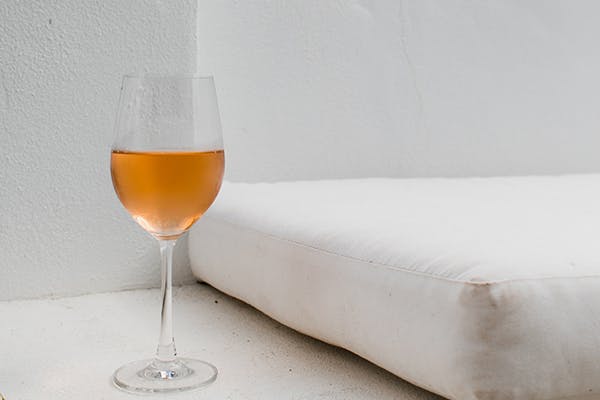
Your sleep quality is not just based on the number of hours you can sleep every night or how quickly you can fall asleep. Studies have shown that the initial sleep effect of alcohol is limited to the first part of the sleep cycle.
It is the later parts of our sleep where our body goes through a restorative phase, which is crucial to healthy functioning. Alcohol use may help you fall asleep quickly, but that support is not carried into this deep sleep.
This is due to the "rebound effect," where a person returns to lighter sleep, resulting in them needing to get up more often or having a restless night of sleep and waking up groggy.
Alcohol consumption before bed can also lead to sleep apnea, which is the collapsing of airways during sleep, causing heavy snoring and even problems in breathing if the problem is not addressed.
With alcohol use, you are more likely not to have a sound sleep. After falling asleep quickly, you can essentially get stuck in the slow-wave sleep, which robs the brain of the much-needed later parts of the sleep cycle, considered the most important.
Less REM Sleep
Rapid Eye Movement (REM) sleep occurs during the later parts of the night. This is the stage of sleep where a person's brain is highly active, and dreams occur during this time. Alcohol consumption directly impacts our REM sleep.
This stage is the most restorative period of your sleep cycle, also needed for memory consolidation. However, alcohol consumption can drastically reduce the amount of REM sleep you get through the night.
Falling asleep quickly shifts the balance between Non-REM Sleep and REM Sleep. This can even result in sleepwalking, talking in your sleep, and having memory problems.
Disrupted Circadian Rhythm
Circadian Rhythm is our body's internal clock. This is any phasic or timed function of our body interacting within its environment. Alcohol interferes with this biological master clock and disrupts its normal functioning.
Alcohol can suppress the drinker's ability to respond to light cues-which usually regulate our internal timings. A study that primarily collected data on the effects of alcohol on mice suggests that drinking heavily has a consistent impact on our circadian rhythm even after the consumption has been stopped altogether.
Getting Up to Pee
Alcohol has a diuretic effect, meaning it causes the body to release fluids quickly. Drinking alcohol before bed results in frequent urination. On top of the other side effects mentioned, you can also add endless trips to the toilet throughout the night.
This happens due to two main reasons. First, alcohol suppresses the release ofVasopressin, a chemical responsible for the reabsorption of fluids in the kidneys, and secondly, the added liquid intake of the alcohol itself.
Weird Dreams
At this point, you might be a bit confused. If alcohol decreases REM Sleep, the period where we see dreams, how come I experience such vivid and bizarre dreams when I drink? The devil is in the details.
After a certain time, the alcohol level in our blood drops low. This can thrust our brain into a REM cycle resulting in nonsensical dreams and sometimes downright scary nightmares. The overall effect is still a restless night and tired mornings.
Conclusion
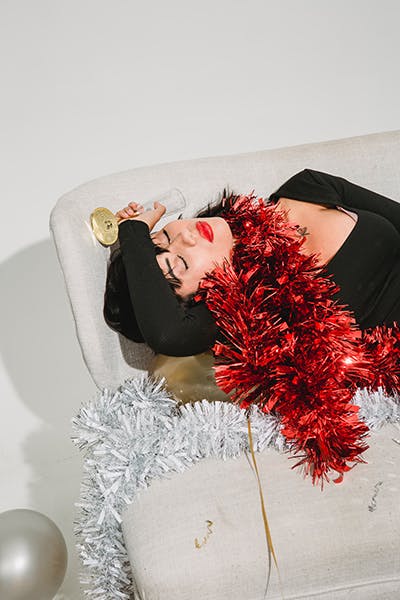
By now, we hope you've come to a better understanding of the connection between sleepiness and alcohol use. Many of these are drastic concerns regarding your health, especially if you consume moderate to high alcohol levels before bed.
To further hammer the point home, alcohol is not a very effective sleep aid. It might trick your brain into falling asleep quicker, but the quality of sleep and the prolonged effects are not worth it.
However, we also live in a reality where insomnia and issues sleeping are becoming an increasing problem. Sandland Sleep can help you tackle your sleep issues in a much safer and healthier manner.
The sleep aid promises restful sleep without any of the side effects that alcohol comes with while being a clean plant-based formula. With its clinically proven effectiveness, Sandland Sleep is the right way to get a good night's sleep.
Alcohol with all of its chronic effects on the quality of sleep is not a sleep aid. People are tempted to self-medicate and drink that glass just before bed, thinking this will lull them into a peaceful sleep.
However, the realities of alcohol-induced sleep are not pretty or desirable. Using alcohol as a sleep aid can worsen alcohol-related problems for people at-risk or encourage naïve consumers to become serious drinkers.
Having a good time drinking, enjoying yourself while being safe comes down to a combination of small tips and tricks. Firstly, make sure that you are drinking responsibly. Choose your drinks wisely, stay away from mixing various forms of alcohol.
Try to stay hydrated during your drinking session as well. Swap out the alcohol for a nice, chilling glass of water every chance you get. Remember that alcohol is diuretic and will lead to dehydration pretty soon.
People who drink alcohol should have a healthy meal before going out to better metabolize their drinks. Get some healthy protein with a glass of milk! It is slow in digestion and hence will help your body handle the alcohol well.
